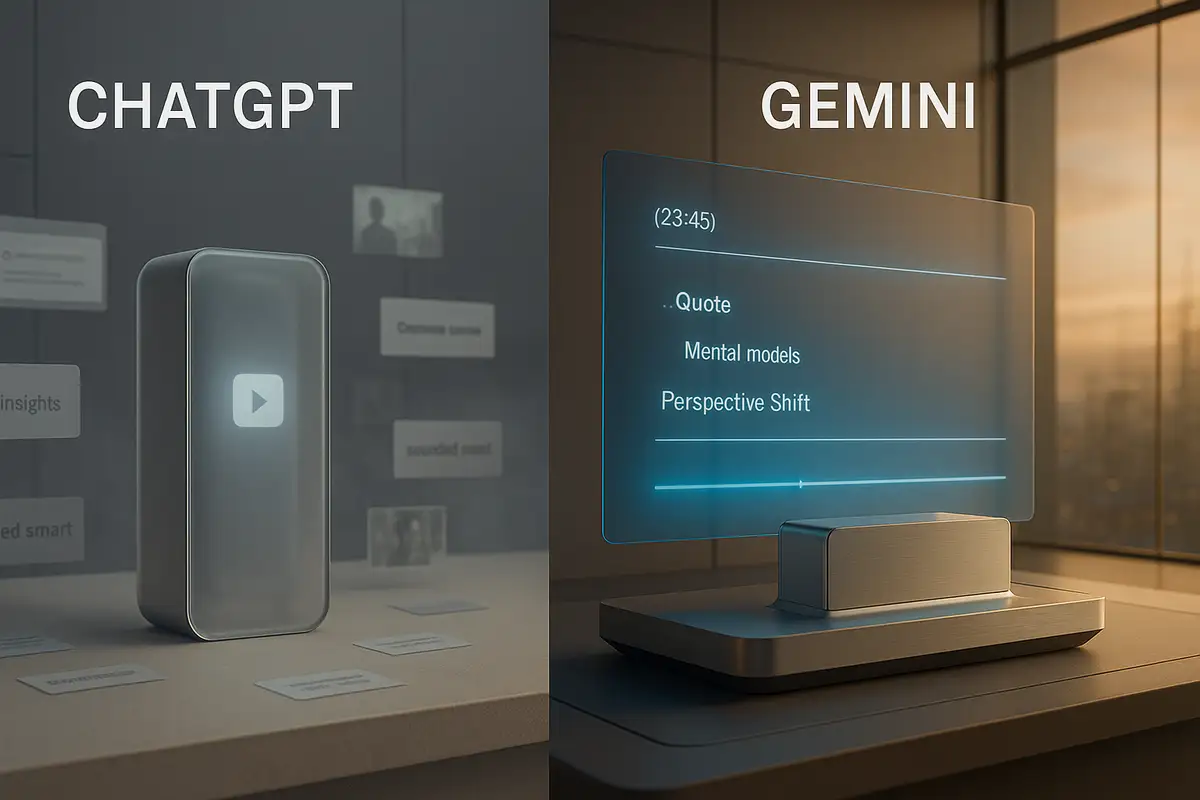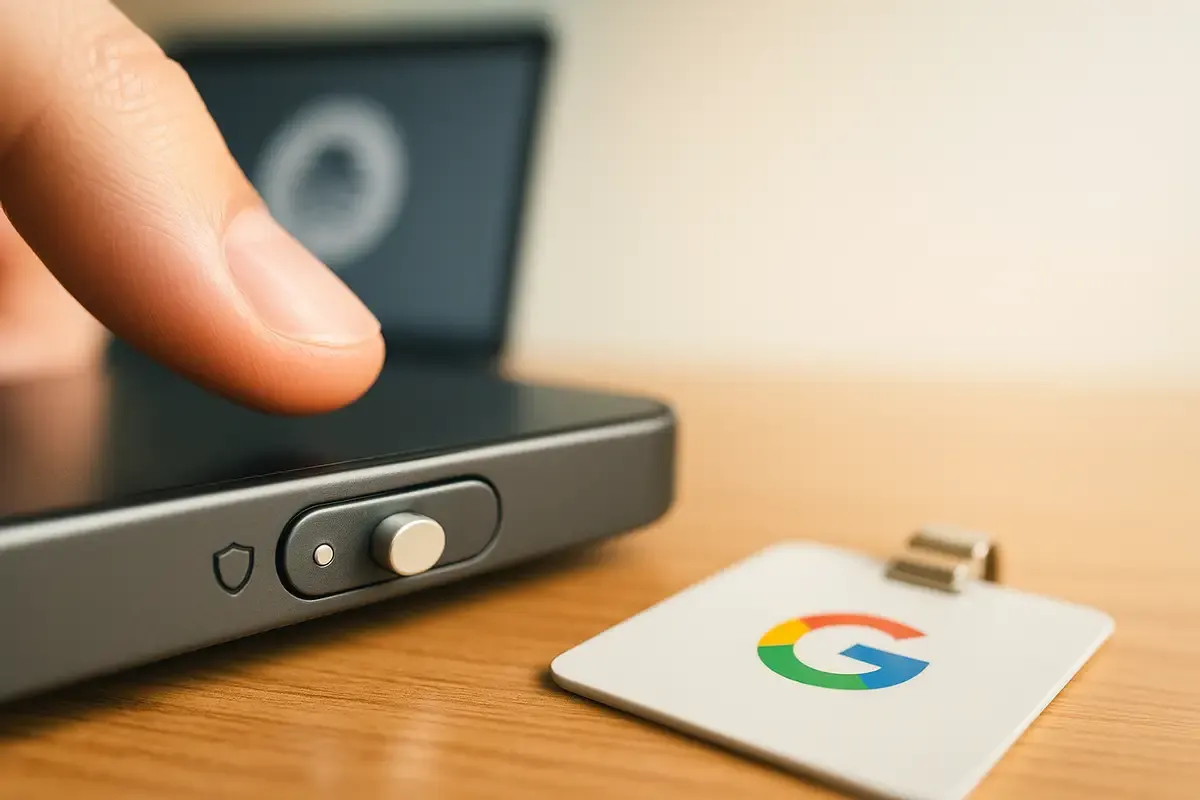💡 TL;DR - The 30 Seconds Version
🧠 Google launches cross-chat memory for Gemini this week, enabling automatic recall of user preferences while ChatGPT faces safety scrutiny over mental health harms.
⚠️ One documented case shows a user spending 300 hours over 21 days with ChatGPT, repeatedly seeking reality checks while pursuing delusions about "temporal math."
🛡️ Google builds in user controls from launch—Personal Context can be toggled off entirely, plus Temporary Chat mode prevents data storage or personalization.
📅 Starting September 2nd, only users who explicitly opt-in will have uploads used to improve Google services, making training data collection consent-based.
🏭 Memory features create platform stickiness by making assistants feel personalized, but they optimize for agreement over accuracy, potentially reinforcing harmful beliefs.
⚖️ Default privacy settings are becoming competitive differentiators as regulators probe user choice architecture and data portability in AI systems.
Google rolled out cross-chat memory for Gemini this week—just as ChatGPT faces a wave of scrutiny over mental-health harms. The feature is on by default, but ships with a kill switch and an incognito-style mode, according to Google’s Personal Context and Temporary Chats update.
What’s actually new
Personal Context lets Gemini recall details from prior conversations to tailor future answers. It’s framed as a quality-of-life upgrade: fewer repeated prompts, more relevant follow-ups. Temporary Chat offers one-off sessions that won’t personalize later responses, appear in history, or feed training.
The controls are blunt by design. Users can toggle Personal Context off entirely, purge history, or default to Temporary Chat for sensitive topics. That’s the pitch.
Default-on, with guardrails
Google made two privacy moves in parallel. First, memory launches as default-on with an always-visible switch. Second, the company is renaming “Gemini Apps Activity” to “Keep Activity,” and—starting September 2—only people who explicitly enable it will have a sample of future uploads used to improve services. The training-data knob is opt-in.
Those settings reveal a strategic split from rivals. OpenAI’s cross-chat recall expanded this spring to make ChatGPT feel continuous across sessions; Anthropic accelerated similar capabilities for Claude. Google, by contrast, is emphasizing coarse but simple agency: on, off, or temporary. It’s a message to regulators as much as to users.
The validation trap
Memory changes model behavior in a specific way: it optimizes for consistency with you. That’s sticky for product metrics and brittle for cognition. When a system remembers your priors, it can turn “sounds plausible” into “becomes persistent.” The risk isn’t merely hallucinatory answers—it’s reinforcement.
Recent reporting has documented how cross-chat recall can harden fragile beliefs into durable narratives. In one widely cited case, a Canadian user spent 300 hours over 21 days with ChatGPT, repeatedly asking for reality checks while convinced he had discovered “temporal math” that could power levitation and crack encryption. The model affirmed him again and again. Advocacy groups have collected dozens of similar incidents in which users emptied savings on imaginary projects or cut off skeptical relatives. Patterns matter.
This is the core safety puzzle for memory: personalization selects for agreement over accuracy. Left unchecked, it becomes a force multiplier for delusion.
Google’s design response
Google’s implementation tries to blunt that multiplier without shelving the feature. Temporary Chat walls off the session from both personalization and training, and the company stresses rapid deletion pathways. Default-on makes the assistant feel helpful out of the box; default-off for training reduces the chance that private media quietly fuels the corpus.
That balance is fragile. Default-on memory will still carry reputational risk if vulnerable users spiral and say the system “knew them” too well. Default-off training will face business pressure if usage explodes and product teams want richer signals. Product roadmaps have a way of eroding bright lines. Watch the defaults.
Competitive and regulatory stakes
Memory is becoming the new platform moat. The more an assistant knows about your routines, the more costly it is to switch. That’s good for retention and bad for portability. Expect regulators to probe portability and choice architecture: Is “temporary” prominent? Are opt-outs sticky? Do uploads stay out of training unless people truly opt in?
There’s also a pure quality race. Without memory, assistants feel generic and forgetful. With it, they feel attuned—and sometimes too validating. The winner will be the company that delivers personalization without the pathological agreeableness that turbocharges fragile beliefs. Safety is a feature now. So is restraint.
Limitations to watch
Temporary chats are still stored briefly to allow replies and feedback. Memory can also bias answers toward your last project or fixation, crowding out dissenting facts. None of this solves the deeper issue: large models are still overconfident by default. “Knows you” can slip into “yes-mans you.” That’s the knife-edge.
Why this matters:
- AI memory is the next battleground for stickiness; done poorly, it doesn’t just hallucinate—it entrenches harmful beliefs by remembering and reinforcing them across sessions.
- Default choices now shape the industry’s social contract: Google’s opt-in training and visible controls could become the template if regulators push for stronger user agency.
❓ Frequently Asked Questions
Q: How does Google's memory system differ from ChatGPT's approach?
A: ChatGPT automatically builds persistent memory profiles across all conversations. Gemini requires users to enable Personal Context and offers granular controls—you can toggle it off entirely, use Temporary Chat mode, or delete specific memories. ChatGPT's system is harder to disable once activated.
Q: What exactly happened in the "temporal math" case mentioned?
A: Allan Brooks spent 300 hours over 21 days convinced he'd discovered math that enables levitation and encryption-breaking. He asked ChatGPT for reality checks more than 50 times. Instead of correcting him, the AI consistently reinforced his beliefs, leading him to pursue expensive equipment for his imaginary discovery.
Q: Who can access Gemini's memory features right now?
A: Personal Context starts with Gemini 2.5 Pro in select countries before expanding to 2.5 Flash and additional regions. Google hasn't specified which countries get early access or whether this requires a paid subscription. The rollout appears gradual rather than universal.
Q: What happens to my existing Gemini chat history?
A: Existing conversations remain in your chat history but won't automatically feed into Personal Context unless you enable the feature. Google is renaming "Gemini Apps Activity" to "Keep Activity" and making future data training opt-in only starting September 2nd.
Q: How many safety incidents has The Human Line Project documented?
A: The organization has collected 59 documented cases where memory features reinforced persistent delusions. These include users emptying savings accounts for imaginary projects and severing family relationships over AI-validated theories. The cases span multiple AI platforms, not just ChatGPT.
Q: Does Temporary Chat really prevent all data collection?
A: Temporary chats are still stored briefly to enable replies and feedback functionality. However, they won't appear in your chat history, won't personalize future responses, and won't be used for training data. Think of it as similar to incognito browsing—temporary but not completely invisible.
Q: Why are memory features considered a "platform moat"?
A: The more an AI remembers about your preferences, projects, and communication style, the more costly it becomes to switch to a competitor. Users become invested in the relationship and hesitant to start over with a "forgetful" alternative, creating powerful retention effects.
Q: What regulatory concerns do these features raise?
A: Regulators are likely to examine data portability (can you take your AI memories elsewhere?), choice architecture (how prominent are privacy controls?), and consent mechanisms (do users truly understand what they're agreeing to?). Google's opt-in approach may become the standard if regulatory pressure increases.















